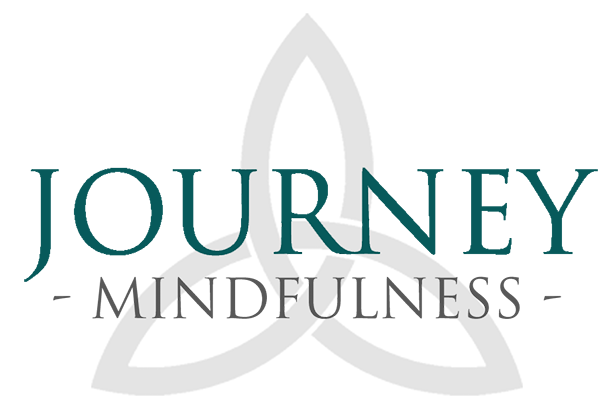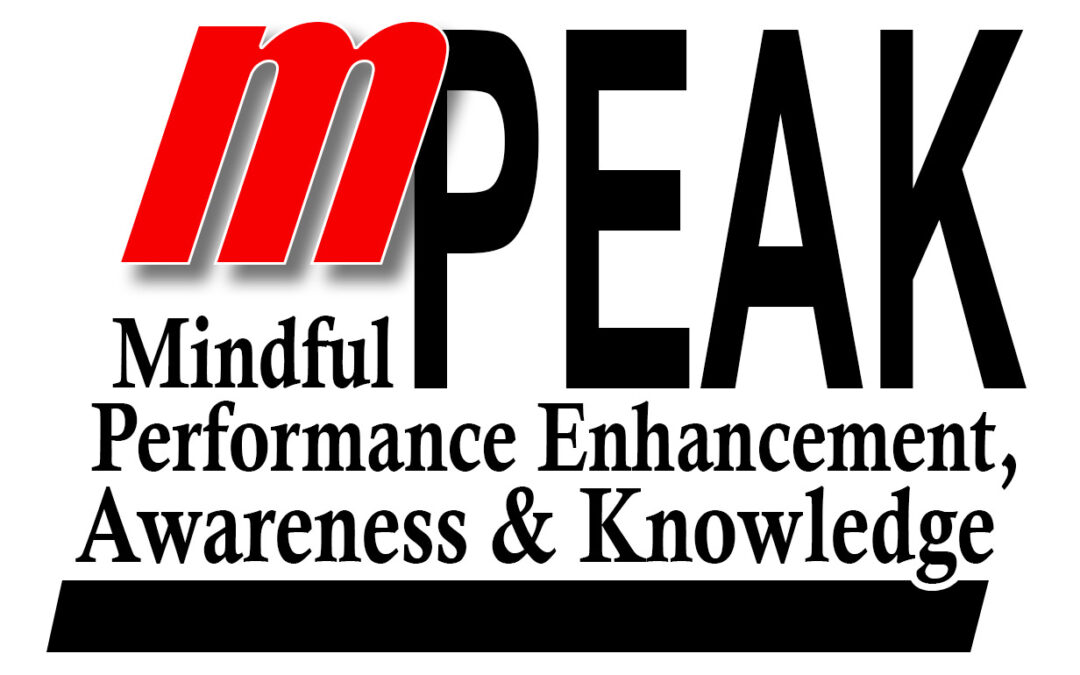I first heard about mPEAK (Mindful Performance Enhancement, Awareness & Knowledge) a few years ago when I began my training as a mindfulness based stress reduction teacher at the Center for Mindfulness at UC San Diego. mPEAK is a performance training program based on Jon Kabat Zinn’s Mindfulness Based Stress Reduction (MBSR) program that has since caught on with law enforcement organizations such as the Department of Homeland Security, elite professional, and amateur athletes from MMA fighters to extreme sport runners, executives, physicians, and other high performers, although it was originally designed by neuroscientists for the USA BMX Cycling Team.
Go to an mPEAK course and you will meet some truly amazing people, at least this has been my experience. In my first course I met an ultra marathon runner, Brad, who ran the 240 mile MOAB, which blew my mind and left me in absolute awe, human beings are capable of amazing feats! Brad and his lovely wife Monica who crushes it in the private sector have now started offering mPEAK trainings in Utah which I highly recommend through RSG Performance.
Mindfulness is a way of being, and learning how to be focused, present, and equanimous in the moment can lead to a state of being called “flow” aka “being in the zone” in which performance is at its highest peak and our skills are able to emerge to meet the the various challenges at hand. Learning how to do this and perform under stress and pressure, i.e. a championship game or final round in a golf tournament, winning a race, or thriing in the octagon in Mixed Martial Arts can be all the difference in the world.
For law enforcement and first responders in can be being situationally aware enough to see and avoid danger before it arrives or during, survive, and learn how to transition back to home life and then be present with loved ones. However, we don’t always win, sometimes we fail, or miss the mark and get defeated. Learning how to meet those moments with compassion leads to greater resilience and fosters our ability to bounce back and not only survive but thrive.
Mindfulness meditation has been around for thousands of years being rooted in a more spiritual path although it has taken a decidedly secular tone in today’s world in its application in modern medicine. The connection to professional sports and basketball specifically went to another level with a man named George Mumford, a mindfulness coach, was asked by Kabat-Zinn to help a then young NBA basketball coach Phil Jackson foster cohesion with his team when Michael Jordan went on his brief retirement to play baseball. Jackson, who won two NBA championships as a player with the New York Knicks, and eleven as a coach with the Chicago Bulls and LA Lakers would later affectionately be nicknamed the “Zen Master.”
Read more on mPEAK training with elite athletes on Outside Magazine here.
However, it was Mumford, an MBSR teacher and author of “The Mindful Athlete,” a former collegiate basketball player at UMASS and roommate of the marvelous Dr. Julius Erving, who was behind the scenes in these championship moments helping those teams achieve greatness and even helping Shaq hit free throws (I am not hating, I am a Shaq fan)! This was highlighted in a study published in the Journal of Clinical Sports Psychology (A. Gooding and F. Gardner 2009) which showed amond Divion I Men’s Basketball players that mindfulness training helped increase free throw percentage by 5.75%, an amount that would likely impact a team’s overall win/loss percentage dramtically. This is exactly why mPEAK is gaining traction. Think about this, Michael Jordan, Kobe Bryant (RIP), Scottie Pippen, Shaquille O’Neal and so many great players from those teams undergoing mindfulness training to perform their best under pressure.
When I first got into competitive golf as a young boy I never thought of the mental game as something to prioritize and practice to improve my game. Sports had always come easy to me, as I was naturally gifted physically. However, at certain points in your life you realize that you need to grow and improve. When I first tried out for DeMatha High School’s varsity golf team I missed the cut, and failed. Golf is slightly different when it comes to physical skills, as I could not outrun the competition. I was angry and was determined to make it the next year. I worked very hard, reading and learning how hard Ben Hogan worked, with images of his hands bleeding, and accomplished that goal. I even purchased Ben Hogan Apex irons to harness his hard work and determination, the mind is funny sometimes.
In the midst of this I will offer a personal story. In one of my first competitive junior golf tournaments I entered a playoff in one of the more prestigious local junior tournaments in the Washington Metropolitan Area. I was new at this but they announced our names and other players and fans started to flock around the hole. I started to feel… PRESSURE. I was able to nervously hit my tee shot into the fairway but I started to overanalyze my approach shot. I was in my head playing out various scenarios and ended up shanking the shot into a hazard. I was devastatingly embarrassed, and rightfully so. I was so angry at myself. I called myself all sorts of negative names in my mind and crushed myself with my inner critic. No one saw this, it was all invisible, but the devastation was done. I failed, it hurt, and it sucked. No one loves failing. And yet there are ways to relate to this experience and be mindful to overcome failure and get better! Afterall, it was simply a moment in time, and an opportunity to learn and grow from. I could have met that moment wither kindness if I had the tools to do so.
I will share another story regarding law enforcement. Many years ago my friends father who was and is a good man and police officer in Prince George’s County Maryland found himself in the worst situation. His name is Gary Sommers. He was with special operations on the SWAT Team and during a drug raid in a tragic sequence of events he accidentally shot his best friend and fellow brother in blue, Mark Murphy, whom he was covering and who had breached the doorway of a drug den. Officer Sommers was one of the best, it was an accident, and one that he beat himself up over, he was filled with guilt, hated himself for the mistake, and even contemplated suicide. His story is powerful and enduring. This event was a tragic accident. His friend simply moved into his line of fire as he was trying to protect him, an unfortunate blue on blue incident.
This was clearly traumatic for him and his family and also the family of Officer Murphy, and thankfully he is able to share his story with other first responders. Officer Sommers is a strong and resilient man, but he also needed help to get through all of this. He was physically strong but the mental strength and aptitude is not often taught to men and women of law enforcement and first responders. Learning how to be mindful in these moments can help us to soak in succes and adaptively cope with failure in productive ways. Officer Sommers could have folded and swallowed his pistol but he didn’t, and that took courage, strength and resilience. Police lost more men and women to suicide, 159, than in the line of duty last year. Self care programs and skills are available, and we can do better.
I want to make clear that for those soldiers, officers, abd first responders who have left the world too soon, and there are far too many of them that there is help available! Psychiatrists, psychologists, counselors, physicians, often have therapists, and if they don’t they probably should in my opinion. There should be no shame in getting help, in fact it should be celebrated because it does take strength, courage, and compassion.
The mPEAK program is geared towards learning how to perform at your highest level in your specific area of performance. Whether you are a first responder, elite athlete, surgeon, lawyer, driven professional, entrepreneur, or anyone else looking on how to increase your level of performance there are skills you can learn to accomplish these goals. What is mPEAK? As a student and now trained mPEAK coach it is a way of relating to life that you can apply to being your best self, in whatever area of performance you choose to focus on and perform your best.
The mPEAK program is currently under the direction of Pete Kirchmer and Dr. Amy Saltzman and was founded by Dr. Lori Haase and Dr. Martin Paulus, and the UCSD Center for Mindfulness leaders Executive Director Dr. Steven Hickman and Managing Director Allan Goldstein.
Courses will be offered in the Baltimore/Washington Metro Region this year.

